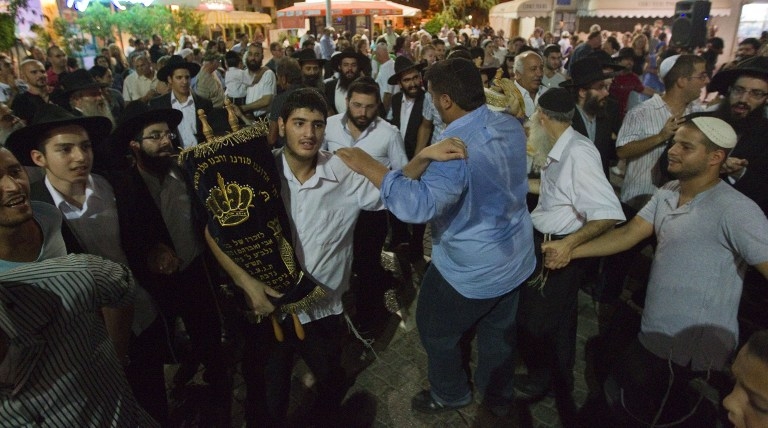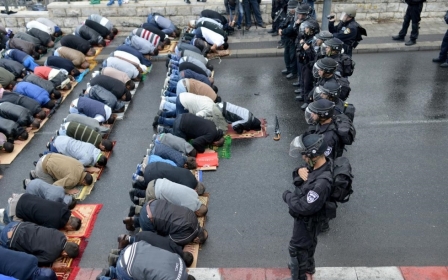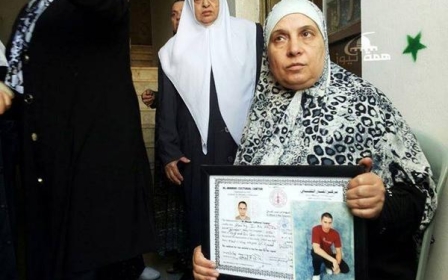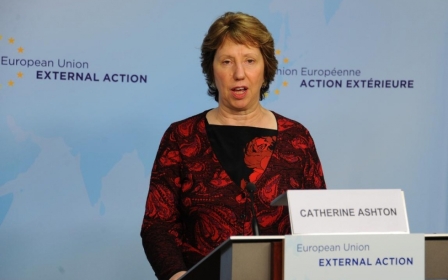Review: Beneath my shirt lies an Arab

“Freha” in Arabic is the feminine form of “happy.” Ars,” in colloquial Arabic means a pimp or a bastard. In colloquial Israeli Hebrew, these words are extremely popular and they are used to describe people with no culture, no manners, vulgar. A noisy woman, a bimbo, is a Freha, a rude man, violent on the verge of criminal behaviour, is an Ars.
The use of words taken from Arabic as pejoratives in modern Hebrew is quite a common phenomenon and it is interesting and telling in itself. But what makes these two words unique is not only their Arabic origin. It is the fact that they are largely used to depict people of Arabic origins: Mizrahi Jews, those who emigrated from Muslim countries, from Afghanistan to Morocco. The "other" half of Israeli Jews, the non-European one.
It is not exactly clear why these words were chosen in the first place. Freha was a common first name among Jewish women in Morocco or Algeria, so it is understandable why it became a generic name for Mizrahi women. It is less understandable why the Arabic word for pimp, Ars, was chosen for Mizrahi men. And it much less understandable why Mizrahi men and women deserved to have a pejorative attribute written under their name.
If we go back to the 1950's and see how did the Ashkenazi Jews, those originally from Europe, treated the huge waves of Jews coming from North Africa or Iraq - some out of Zionist zeal and many simply running for their lives - we could better understand how these nicknames were born. "It is a race we had not known before," wrote Arie Gelblum, a leading (Ashkenazi) journalist for Haaretz in April, 1949, while describing the new Mizrahi immigrants. "These are extremely primitive people, their education borders with complete ignorance and worse: they lack all ability to absorb anything spiritual. They are only slightly better than the Arabs, Negroes and Barbarians among whom they lived."
65 years later, the tensions between Mizrahi and Ashkenazi Jews remain one of the most sensitive questions in Israeli society. One which raises controversy by even claiming it still exists, as if dealing with it does not only threatens the cohesion of (Jewish) Israeli society, but also its very own identity as Western society, a European island or bunker in the Arab Middle East. The new documentary series, "Freha's and Ars'es, the new elites," screened these days on Israeli television, is no exception. It is only doing so in a bolder, more challenging, or even provocative way.
It is almost impossible to deny now that the Mizrahi Jews were unequally treated for many years. They were sent to small and far-away new towns on the borders of the new Jewish state, while most Ashkenzi immigrants settled in big urban areas at the heart of Israel; they were given manual jobs while their fellow Ashkenazi were given better jobs, their children were sent to vocational education, learning carpentry or welding, while most Ashkenazi kids were sent to general schools on the road to higher education.
The huge disparities between Askenazi and Mizrahi Jews have narrowed over the years, yet they remain significant. Ashkenazi Jews represent only 27 percent of the total population, but 49 percent of the upper echelon in Israel are Ashkenazi, while Mizrahi are represented exactly according to their share in the population - 27 percent. A Mizrahi Jew has three times more chance to be poor than an Ashkenazi. Among the elites, this ethnic separation is very much felt. Only one out of 15 high court judges is Mizrahi, 6.2 percent of university teachers are Mizrahi. Except for Shas, a party founded by Mizrahi religious Jews, all political parties in Israel are headed now – and were always headed (with one exception for two years) - by Ashkenazi's.
Above all, the dividing line between Ashkenazi and Mizrahi Jews remains decisive in forming political affiliations. Most Ashkenazi Jews vote for the Labour and other centre-left parties – the descendants of the parties in power when the mass waves of immigration from Arab countries arrived in the 1950's – while most Mizrahi Jews vote for right-wing parties, who were in opposition to the ruling Left parties at the same time. The children and grandchildren of those Mizrahi immigrants, who were treated as "extremely primitive people," refuse to forget.
Yet, despite this overwhelming evidence to the existence of ethnical tensions inside the Israeli Jewish society, whenever a Mizrahi politician or intellectual dares to speak about it, she or he are immediately accused of dwelling in long forgotten past traumas, of disseminating division rather than unity and of "letting the ethnical devil out of the bottle." The fact that Mizrahi Jews were discriminated against is not flatly denied, but it is claimed to be irrelevant today. Discussion on the issue is seen as a threat.
In his documentary film, "Freha's and Ars'es," director Ron Cahlili does not only deal with this issue, he cries it out with all his heart. He has interviewed dozens of third-generation Mizrahi Jews and found a fascinating phenomenon. These young Mizrahi are only extremely aware of the Ashkenazi scorn towards them and their culture, they are proud of being non-Ashkenazi, non-Western. If society tags me as Freha or Ars, as a bimbo or a criminal – they say - I take pride in it, I reclaim it to be mine. I would dress extravagantly, talk aloud, listen to oriental or even Arabic music, as a defiance against Ashkenazi domination.
As expected, Cahlili film raised heated controversy. It was claimed that he exaggerated, that he is a “professional whiner,” that Ashkenazi Jews suffered too in Israel, that instead of promoting solidarity between Mizrahi and Ashkenazi, he is widening the divisions. Dozens of articles were published commenting on the film, the social media is full of pro's and con's.
Cahlili, son of Egyptian-born Jewish parents, knew that whenever you touch this subject, the reaction is immediate, but he was surprised from its scale. “I feel like a priest who hears confessions,” he says, “I got hundreds of calls from people saying to me: ‘I was hiding all these years and now I can talk.”” But what really bothers him is the fact that most Ashkenazi do not have the ability to feel the pain of the other, whether Mizrahi, Arab or Russian-born. They are reluctant to admit that oriental culture is not backward. They feel attacked.
Watching Cahlili’s film, it is understandable why the old Ashkenazi elites feel threatened. The new generation of Mizrahi Jews is bent on taking their place, to deprive them of their power, without asking their permission or consent. But there is another layer underneath this sociological shift. By sticking to their original culture, by keeping their attachment to their religious traditions, by returning to sing and listen to Arab music, they challenge Israel's self-definition as a secular Western society, or rather as a non-Arab society. These are foundations on which Zionism was built.
Most of those interviewed by Cahlili hate to describe themselves as Arab-Jews. He recalls that when he wrote an article in which he defined himself as such, a girl he interviewed was deeply offended. Cahlili explained, “You, the Ashkenazi's, doubt our ‘Israeliness,’ then we, the Mizrahi's, have to prove we are super-Israelis. This is the reason why the majority of those shouting ‘death to the Arabs’ during the last war on Gaza were young Mizrahi Jews.” But after crying these slogans in the streets, said Cahlili, they came back home, spoke Arabic with their parents and sang Arabic with their friends.
According to Cahlili, the origin of this love-hate relationship is very clear. In the eyes of Ashkenazi Jews, a Mizrahi Jew is a sublimation of an Arab. The Ashkenazi Jew who votes for left parties and supports the end of occupation is able to see the Arabs on the other side of the wall, but is unable to see the Arab inside, meaning the Mizrahi Jew. He can enjoy an Iranian movie, but will be deterred from such a culture inside Israel. This phenomenon is not particular to Israel, explained Cahlili, it is a part of the Islamophobic campaign all over the West.
Due to his "oriental" name, Cahlili is searched arriving at American airports. I am the enemy from within, he says, beneath my shirt lies an Arab. The fear to acknowledge the "Arabness" of the Jews coming from Islamic countries is inherent to Zionism, he said, but without acknowledging it, there will be no cure for the divisions inside Israeli society. The journey he made during this film showed him that he is not alone. But the road is still very long.
Middle East Eye propose une couverture et une analyse indépendantes et incomparables du Moyen-Orient, de l’Afrique du Nord et d’autres régions du monde. Pour en savoir plus sur la reprise de ce contenu et les frais qui s’appliquent, veuillez remplir ce formulaire [en anglais]. Pour en savoir plus sur MEE, cliquez ici [en anglais].




